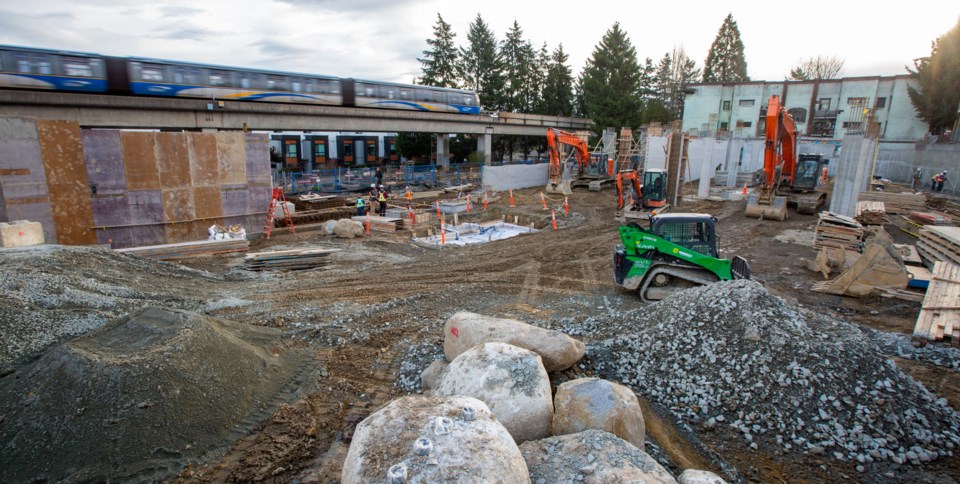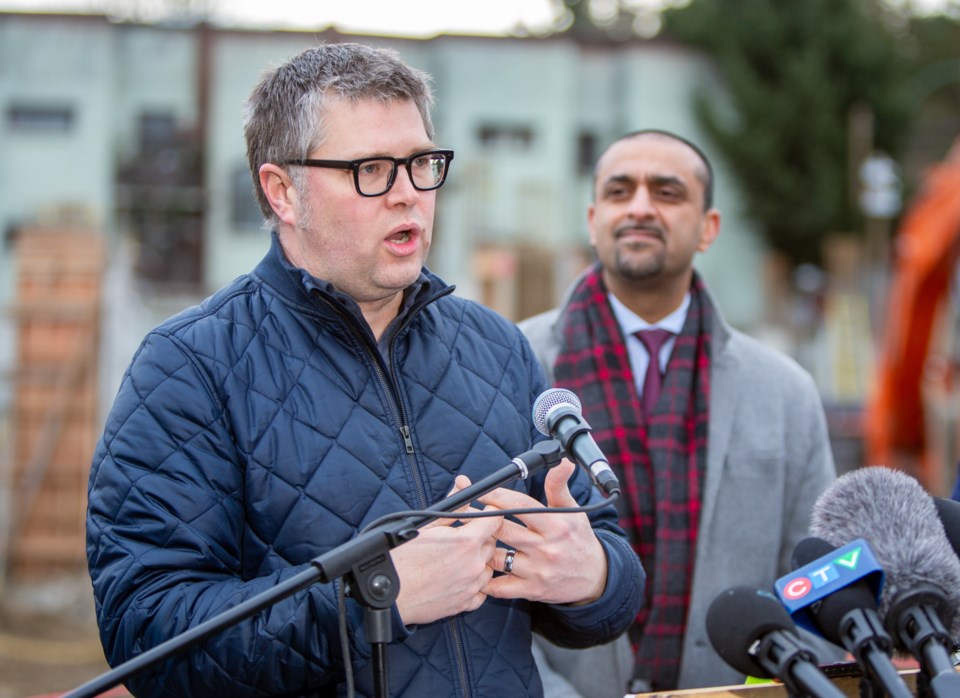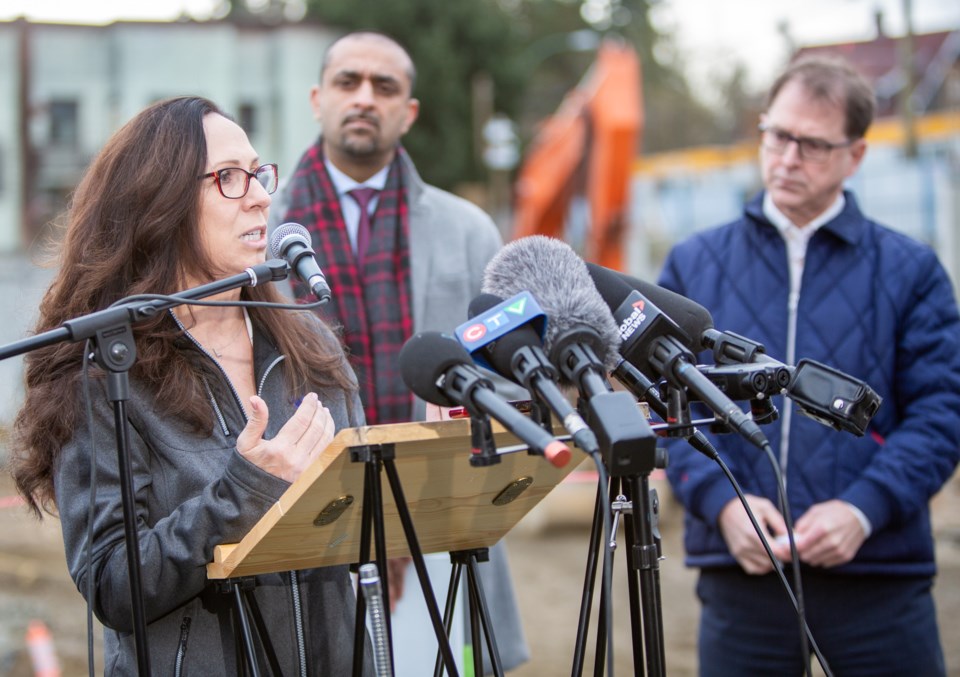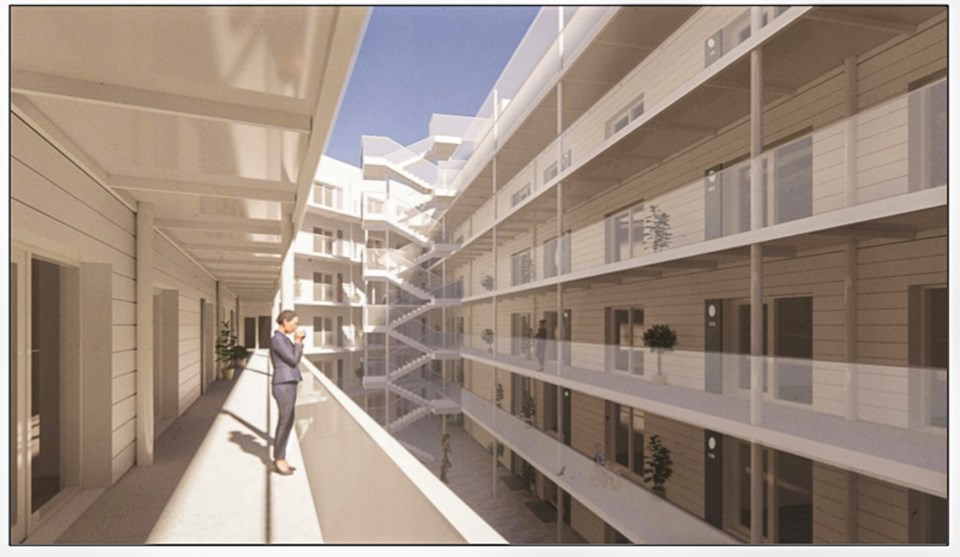B.C. Housing Minister Ravi Kahlon touted Thursday a seven-storey, 123-unit rental housing project under construction in East Â鶹´«Ã½Ó³»as “a blueprint” for other cities in the province to use in building affordable, sustainable homes.
At the same time, Kahlon acknowledged such a project as Vienna House requires city land, provincial government funds and a non-profit operator committed to build what will be a mass timber building designed for prime energy efficiency.
“It needs to be a blueprint for every project going forward,” said the minister, who also emphasized the $35.2-million project’s proximity to SkyTrain stations at Commercial-Broadway and Nanaimo Street.
“When we introduced transit-oriented development legislation, this is the vision that we had — was to build our communities around the billions of dollars we’re investing in our transit.”
Kahlon then used a metaphor related to the board game Scrabble to further emphasize the uniqueness of the project, which will combine shelter, low-income and market rentals in the building at Victoria Drive and Stainsbury Avenue.
“This project literally is a triple-word score, and if we can replicate this project across the province, that is our goal and that is what we’ll continue to work on,” he said.

Â鶹´«Ã½Ó³»signs agreement with Vienna
The building will include 29 studios, 37 one-bedrooms, 35 two-bedrooms, 16 three-bedrooms and six four-bedrooms. Ten per cent of the units will go to people living with disabilities.
Approximately 25 homes will be rented at shelter rates, 61 will be geared to income and 37 at “affordable market” rates, according to government information supplied to reporters at the site.
Another unique element of the project is its connection to Vienna, Austria.
The City of Â鶹´«Ã½Ó³»and the City of Vienna signed a Memorandum of Cooperation in 2018, committing to sharing knowledge and advancing innovation on the development of low-carbon affordable housing.
The project, which is being built to the world-leading Passive House standard for energy efficiency in buildings, is named Vienna House in acknowledgement of the agreement.

Chris Higgins, a city senior green building planner, said the agreement was triggered by a motion from then-city councillor Andrea Reimer, who was inspired by Austria’s sustainable public housing system.
“She visited Vienna and wanted to import some of the learnings from some of their projects there and apply them to City of Â鶹´«Ã½Ó³»projects,” said Higgins, noting the inclusion of a large courtyard in Vienna House is a feature borrowed from Austria and aims to reduce social isolation of tenants, some of whom will be seniors.
“It’s not a very common design in Vancouver.”
City planners, along with architects in Vancouver, have met with Viennese officials to share information about design, improving social outcomes of tenants and building the most cost-efficient housing.
A government news release said researchers at the University of B.C. are also collaborating in the city-to-city agreement to produce innovations in the sustainable design of affordable housing.
'This is what the Europeans do'
John Wall of Public Architecture is the architect on Vienna House and said his firm is developing a “digital twin” of the project, which will assist builders with pre-fabricated wall, floor and ceiling components.
The approach will reduce emissions during construction, store carbon and contribute to diverting an estimated 75 per cent of construction waste from landfills — and, conceivably, get the project built faster.
“This is an early project, but the lessons learned here will be shared with other development teams around the province so that they can learn from this,” Wall said. “Then hopefully, in the course of five, 10 to 15 years, we just get better at this.”
Added Wall: “This is what the Europeans do. They use a lot of prefabrication [components]. They use a lot of these digital tools to develop projects quickly. That helps bring costs down and it gets more housing to the population faster.”
More than a Roof Housing Society was selected by city council in June 2020 to finance, build and operate the social housing on the site. The society will own the building on a 60-year lease from the City of Vancouver.

Heat dome, health crisis
Lee Anne Michayluk, chief operating officer of the society, said the mission and purpose of her organization is to break cycles of poverty and homelessness. Extending that mission to build a low-carbon emission building “brings an additional layer of complexity,” Michayluk said.
“We set out to address big topics like climate change, the affordable housing crisis and social isolation,” she said. “And in recent years, we've seen these complex issues become inextricably linked when you think about things like heat domes, and the recent health crisis.”
Added Michayluk: “So that's why it's important for us and every agency to be involved from the very beginning of a project. This is truly a model of social purpose collaboration for the good of the community.”
BC Housing is providing approximately $22.2 million to the project, with the city contributing $13 million in land and waivers.
Vienna House is expected to be completed by fall 2025.




